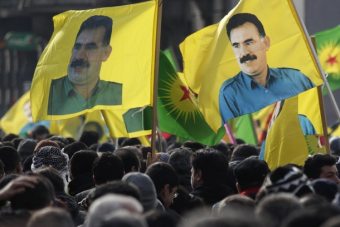Kurdistani4ever
Kurdistan is my homeland
I would certainly not pat Palestinians on the back either, although they have a far better chance of establishing a state. My problem with much of this thread is threefold:Everyone seems to be shitting on the Kurds dream of their own country, but if these were Palestinians doing the same you'd be here patting them on the back. Sickening.
First, they support a radical communist "workers" party which is almost universally recognized as a practicing terrorist group with total disregard for civilians, not unlike the Shining Path in Peru.
The second is that these posters feel they have free reign with facts because they correctly suspect that few Westerners, and even fewer Americans, have even a rudimentary knowledge of the region. We've heard wild claims of Kurdish populations, power, lands and history.
Finally, these posters live safely in the west miles from the epicenter of the conflict. With self-righteous zeal and a nebulous grasp of facts and life on the ground in Kurd areas, they agitate for these illiterate and semi-nomadic sheepherders to take up arms against overwhelming force which can only lead to catastrophic consequences for their compatriots. While ima is undoubtedly a troll, on this he is undoubtedly right.
Look at this racist donkey. Kurd's haven't done him sh*t, and he insists on doing his internet-hate.
I'm sorry, but isn't this racism?







